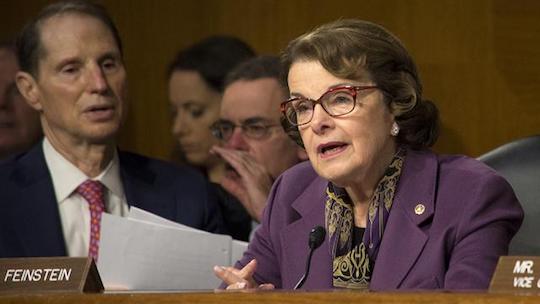It’s snowing in Missoula as I write this—just one more example of Mayor John Engen’s failure to guide this city toward a better future for all of us. It literally never did this before the mayor was elected. In addition to snow, we’ve had to contend with property taxes, out-of-control housing prices, and too-thoroughly-controlled everything else. I, for one, am sick of the mayor’s tax-and-spend progressive agenda. The time is right for new leadership, which is why I’ve announced my own candidacy for mayor, city council, US Senate—whatever I can do to help, really, so long as it puts me in a position of leadership with salary and benefits. You can read all about it in this week’s column for the Missoula Independent, in which I describe my platform of controlling the weather, halting immigration from other states, and ending government overreach. We’ll be back tomorrow with Friday links!
Author: Dan Brooks
Let’s talk about this conservative meme
According to its Twitter page, Turning Point USA is a student movement for free markets and limited government whose members are “the community organizers of the right.” According to Wikipedia, Turning Point is a 501(c)3 organization that took in $78,890 in 2012 and $5 million in 2016. Its tax status keeps it from participating in political campaigns, but it can issue broad statements of ideology like the meme above. The @TPUSA Twitter account tweeted it a little after noon in the One True Time Zone. It’s a picture of some labor protestors and some soldiers: one side “fights for $15 to flip burgers” while the other “fights for your right to be an idiot.” That’s what is written, but what does it say, man? It’s never an easy question to answer, but lucky for you, I’m a nearsighted palmist. That’s right: I like to do a close reading.
What do algorithms give us a reason to do?

Screen shot from BURIED ALIVE Outdoor Playground Finger Family Song Nursery Rhymes Animation Education Learning Video
I’m a modern guy, so when I read a title like “BURIED ALIVE Outdoor Playground Finger Family Song Nursery Rhymes Animation Education Learning Video,” my first question is who came up with it. Shows you what I know. If I were a postmodern guy, I would realize nobody was behind the decision to call a video “BURIED ALIVE Outdoor Playground Finger Family Song Nursery Rhymes Animation Education Learning Video.” Algorithms settled on those words, and the only human decision involved was the decision to follow the algorithms. Stop what you’re doing and read James Bridle’s essay about automatically-generated YouTube videos for small children. It is the directest look yet at what is wrong with the internet. Bridle uses these videos as a case study in how automation turns what everyone wants into things no one wants, e.g. hourlong videos of Peppa Pig getting her teeth pulled out or million-person conspiracy theories about pedophilia in a pizzeria. Here’s a quote:
Automated reward systems like YouTube algorithms necessitate exploitation in the same way that capitalism necessitates exploitation, and if you’re someone who bristles at the second half of that equation then maybe this should be what convinces you of its truth. Exploitation is encoded into the systems we are building, making it harder to see, harder to think and explain, harder to counter and defend against.
The more we turn over the content of the internet to automated systems, the more we make the internet into the maximally effective version of something weird and disturbing to us. The things people want most are branded characters, certain screaming sounds, bright colors and simplistic violence, so here’s a video of Marvel villains burying people alive. It feels awful because few humans were involved in creating it, and those who were involved ceded their agency to an algorithm. Anyway, this essay seems like one of those ideas we’re going to refer to in the future, so I encourage you to read it. I’m glad I did.
State insurance commissioner on state insurance exchange: It sucks!
Sorry to use this unflattering photo of Matt Rosendale, apparently taken at the moment a bat flew into the room, but I ran into legal problems. I wanted to use this one, but I couldn’t get the rights from Dick Tracey. Anyway, we all know from civics class that the Montana State Auditor and Insurance Commissioner is in charge of the state’s insurance exchange. And we all know from Rosendale that Montana’s exchange sucks. The premiums are too high! My own personal insurer, Montana Health Co-Op, raised the rates on its silver plan 24% going into 2018, on account of Trump took away federal CSR payments. That’s bullshit, though, because when they submitted rates back in June, they specifically told Rosendale they’d be fine with or without CSRs. I quote the commissioner:
My department was advised by both companies just months ago, that with or without [cost-sharing reduction] payments, they would be able to honor the rates they provided to us and the public. Today, by their actions, they inform me that was not true.
What a screwjob! If only we had some sort of state official whose job it was to regulate the behavior of insurance companies. The commissioner insists he has no legal authority to hold them to their previously submitted rates, even though A) there was a deadline, and B) they specifically agreed not to do this. It’s no secret that Rosendale, a Republican, opposes the Affordable Care Act that created the exchange in the first place. It’s almost as though letting insurers raise rates and then publicly complaining about it serves three of his interests: his interest in friendly relations with the companies he regulates, his interest in watching Obamacare blow up, and his interest in harnessing the outrage of the ordinary voter.
But does it serve his interest in getting elected to the US Senate? Rosendale is currently the only Republican candidate for Jon Tester’s seat who holds statewide office. The exchange is his identity. Will voters respond to his bold message of “just look at this failed system I’m running?” You can read all about it in this week’s column for the Missoula Independent. We’ll be back tomorrow with Friday links, maybe. I’m doing so much work, you guys.
Sen. Feinstein threatens to “do something” about social media
The Senate Intelligence Committee held hearings today on Russia’s use of social media during the 2016 election, questioning representatives of Google, Facebook, and Twitter. These panels come on the heels of yesterday’s Judiciary Committee meeting on the same subject, where Sen. Diane Feinstein (D-CA) was apparently frustrated by the companies’ failure to grasp the extent of the problem. Or she was mad they didn’t send their CEOs. Either way, the senator spoke sharply to the tech company representatives. I quote The Hill:
What we’re talking about is a cataclysmic change. What we’re talking about is the beginning of cyber warfare. What we’re talking about is a major foreign power with the sophistication and ability to involve themselves in a presidential election and sow conflict and discontent all over this country…You have a huge problem on your hands. You have created these platforms and now they are being misused. And you have to be the ones to do something about it, or we will.
Um…the federal government is going to do something about social media? Surely Senator Feinstein was not talking about censorship. Perhaps she only meant the government would do something about which foreign entities can post material on American websites. You know, like Americans can see tweets from friendly countries but not from Russia. Or maybe there could be some kind of system where we only see news the government has certified as real. Whatever it is, I’m sure the feds can find some way to prevent people from using social media to “sow conflict and discontent.”
Three problems leap to mind, here. The first is that we still don’t know to what extent Russia influenced the last election, and what portion of that influence can be attributed to social media. You can call phony news stories about Hillary Clinton “the beginning of cyber warfare,” but that doesn’t describe what happened; that describes how you intend to respond. So the first problem is that we’re starting from the assumption that Russia or some other hostile outside force is responsible for the bad consequences of social media, when we’re not actually certain they are.
The second problem is that Feinstein is talking about this presumed foreign meddling as though it were a war. The thing about war is that it justifies a lot of responses that are otherwise unthinkable. Normally, when the American public shows signs of “conflict and discontent,” we do not want the government to do something about it. But when conflict and discontent are the product of malevolent foreign influence, and we’re at war, then maybe the feds should step in to regulate a formerly free exchange of ideas. This country has already shown a willingness, in history and in recent years, to violate basic constitutional principles in the name of war. So the second problem is that the senator is militarizing this issue and, in the same stroke, suggesting that the government might regulate speech.
The third problem is that Senator Feinstein is 84 years old. I bet she’s a canny old lady, but I also bet she refers to each message she receives as “a Facebook.” When she tells executives from these companies that “I don’t think you get it,” she introduces the possibility that in fact she is the one who does not understand how these platforms work. This problem is potentially endemic to the senate. The average age of a US senator is 61 years old. Of all the 61 year-olds you know, how many have a keen grasp of social media and its relevance to American discourse?
Feinstein is facing a primary challenge next year, and it’s entirely possible she was only grandstanding. It doesn’t seem likely that the same Congress that couldn’t repeal Obamacare will agree on a comprehensive plan to regulate social media. Still, these remarks are unsettling. “Hostile agents have infiltrated our discourse to sow division” is a classic rationale for censorship. Show me a government that regulates speech, and I’ll show you one that’s protecting its people from the corrosive influence of foreigners.




